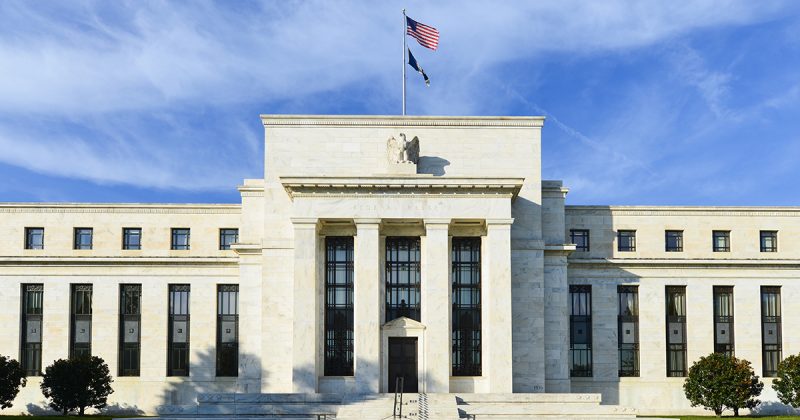
As Mnuchin Backs More Stimulus, Investors Turn to Bitcoin for Returns
A combination of factors paints a bleak future outlook for the U.S. dollar. However, two major elements stand out and provide a legitimate threat to the dollar's dominance.
The U.S. Secretary of the Treasury, Steve Mnuchin, backed plans to continue quantitative easing and suppress interest rates through 2022. As these factors further stress a weakening dollar, is it finally time for Bitcoin?
Understanding the Treasury’s Relationship With the Dollar
The state of the global economy grows worse by the day. Initial optimism is dying down as even ever-hopeful entities like the World Bank are beginning to see the real picture.
Scott Minerd, CIO of Guggenheim Investments, penned his thoughts on the situation. Minerd believes that it will take years to reverse the economic damage caused by this pandemic.
Unemployment in the United States peaked at 10% in 2009 – months after the 2008 financial crisis receded.
This time, unemployment hit 16% within the first two months of what we now know is a proper recession.
A combination of factors paints a bleak future outlook for the U.S. dollar. However, two significant elements stand out and provide a legitimate threat to the dollar’s dominance.
It’s important to note that Treasury bills are considered dollars. When companies and countries say they have dollars on their balance sheet or foreign exchange reserves, a majority of it is held in low duration treasuries.
The Fed’s Balance Sheet Will Continue Expanding
A dirty secret of the 2008 crisis is that the Federal Reserve’s quantitative easing funded the United States Treasury and kept interest rates from skyrocketing, wrote Minerd.
Minerd expects more of the same this time around. Today, his expectations were met as the American government confirmed further stimulus moving forward.
The Treasury needs as much money as it can get to fight the economic fallout from COVID-19 – much more than it did in 2008.
Every month, the Treasury issues over $170 billion of debt via treasuries per Minerd. But the Fed is only absorbing about $125 billion a month.
The Fed will increase its assets purchases, adding more government-backed securities to its swelling balance sheet.
Respected analysts and investors, Paul Tudor Jones and Ray Dalio, have publicly criticized the Fed’s actions. And while they may be the only multi-billion dollar macro investors who have offered their perspective to the public, it is unlikely they are the only ones who share a similar thesis.
Countries are reducing their allocation to the dollar in their foreign exchange portfolios too.
Emerging markets like Russia are already bearish on the dollar’s prospects. The country dumped 70% of its total U.S. treasuries from February to March 2020.
With China’s annexation of Hong Kong, there is another threat. China and Hong Kong cumulatively own 16% of all outstanding treasuries. Souring Sino-American relations may turn China’s constant threats to dump these treasuries into a reality.
This would further weaken the dollar as the market for treasuries soaks up the impetus of supply. A weaker dollar implies a stronger Bitcoin.
Low Rates Spells Doom for Investors
While United States Treasuries are considered the safest investment one can make, this narrative could be upended by investors hungry for returns in a diminishing economy.
Low-interest rates on treasuries are necessary to keep the government’s cost of funding low. But this simultaneously suppresses the yield, or return, these instruments offer investors.
The swap market is already pricing in the probability of interest rates rising within the next five years, per Scott Minerd. To keep government funding costs muted, the Fed must offer extended guidance for low benchmark rates.
This would surprise the market and paralyze bond yields. Investors need returns to survive, so they’ll look for them elsewhere.
This doesn’t mean investors will exit Treasury markets en masse, but rather that a sizable amount of capital will exit these markets in search of returns.
Since treasuries are considered a safe-haven asset, Bitcoin or gold could prove to be viable alternatives for these investors, depending on their preference.
Bitcoin’s Rise to Prominence
Stepping back, an ever-expanding central bank balance sheet, deteriorating global relations, and suppressed yields for investors paints an enticing picture for the Bitcoin thesis.
Investors can use Bitcoin as a multi-purpose vehicle: a means of achieving healthy returns as well as a political hedge against a collapsing dollar.
While a future in which Bitcoin replaces the dollar looks grim, the opportunity to exit an archaic system for a new, permissionless variant may be investors’ only option.
